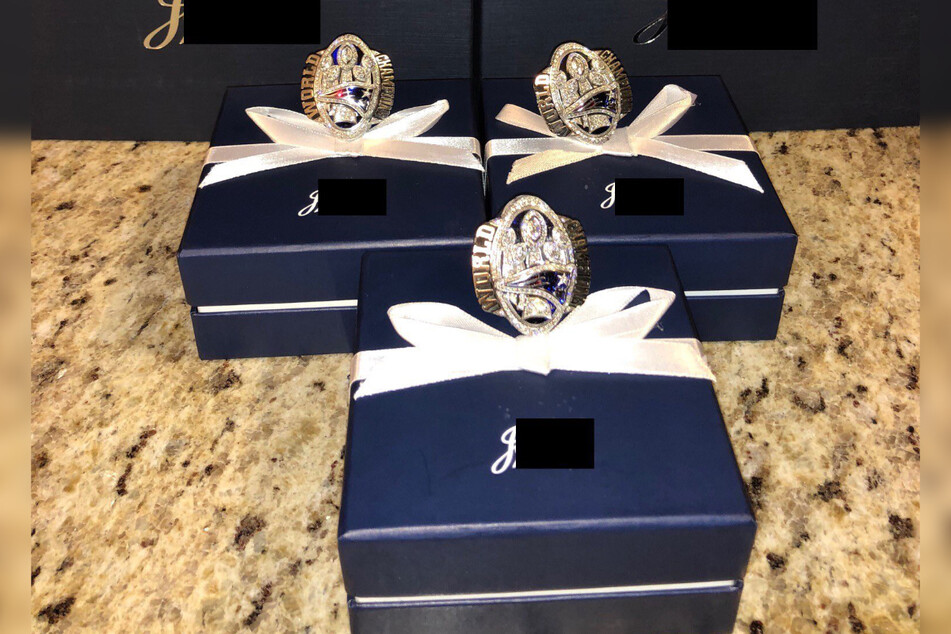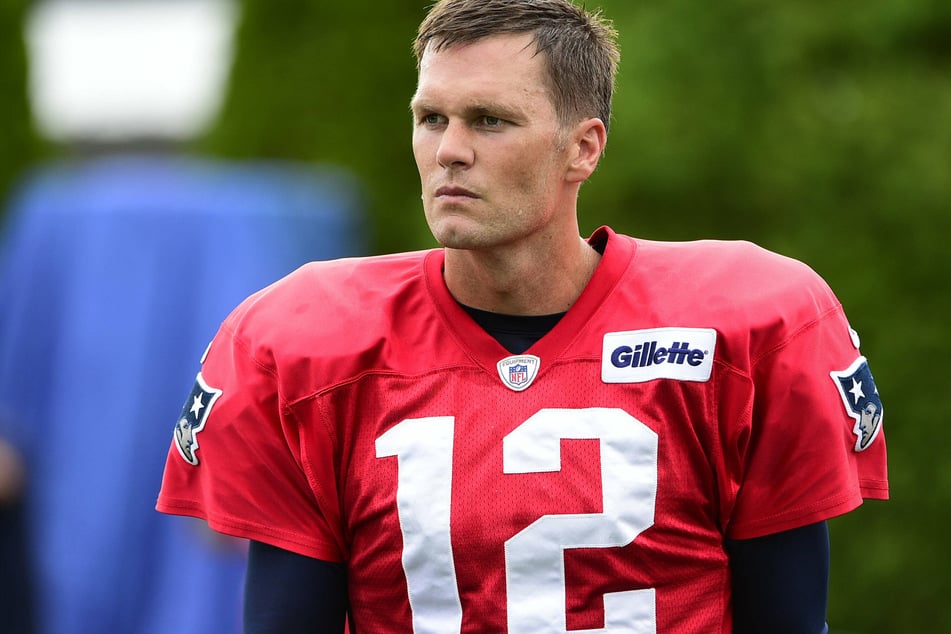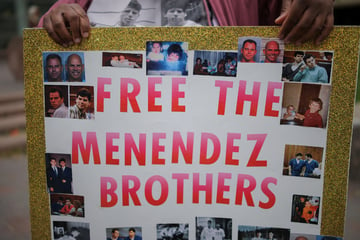Super scam: Con man sells fraud Tom Brady Super Bowl rings
Santa Ana, California - A wild goose-chase over buying and selling Super Bowl rings has entangled Tom Brady's name into the mess, and landed one fraudster behind bars.

A man admitted in court on Tuesday to defrauding a former New England Patriots player to get his 2017 Super Bowl ring. He then posed as the player, using his identity to buy and sell more championship rings that he claimed were gifts for Tom Brady's family.
Brady officially retired from the NFL this week after a 22-year career, and is known as the GOAT.
Appearing virtually from New Jersey, Scott Spina Jr pleaded guilty in federal court in California to one count of mail fraud, three counts of wire fraud, and one count of aggravated identity theft. The 24-year-old faces a mandatory minimum prison sentence of 24 months and must pay restitution to his victims.
Among Spina's victims was a well-known collector of championship rings in Orange County, California. Identified only as "S.W." in court documents, the man had flown to New Jersey in September 2017 to buy and pick up the 2017 Super Bowl ring.
Made of white gold molded into the shape of a football, the ring from Super Bowl LI was emblazoned with 283 diamonds. Engraved on the inner surface of the ring were the words "GREATEST COMEBACK EVER," a nod to the Patriots' historic 25-point comeback victory over the Atlanta Falcons.
While the ring may have been real, the way Spina got a hold of it was certainly not on the up and up.
The ring buying scheme crisscrossed the country

The Orange County buyer was unaware that several days earlier, Spina had obtained the ring by defrauding a former Patriots player, referred to in court documents as "J.T."
Spina and his girlfriend had flown to Georgia to meet the former player, and Spina wrote him a bad check, knowing he didn't have enough money in the bank to buy the ring, prosecutors wrote in a plea agreement.
As a part of that deal, Spina also got a hold of the player's login credentials for the company that manufactured the ring, the agreement said.
With those credentials, Spina was able to order three smaller rings that Super Bowl champions can purchase for family members. On phone calls with the ring manufacturer, Spina pretended to be the former Patriot, using the player's name.
He told the company he would be giving the rings to Brady, at the time a member of the Patriots, and his family, including his son. Spina requested to have "Brady" engraved on the rings.
Spina then reached out to the Orange County collector, prosecutors said, offering up "Three Tom Brady Family 2016 New England Patriots Super Bowl LI World Championship Rings," as he wrote in a contract for the deal.
Spina claimed that the rings were ordered by the former Patriot "J.T." as a gift to Brady's nephews and that he had cut a deal with Brady's family to obtain the jewelry, prosecutors said.
The Orange County man agreed to pay $81,000 for the three rings and wired $6,500 to Spina as a deposit.
In November 2017, after the rings arrived at Spina's New Jersey home, he sent a photo to the Orange County collector, claiming that he was picking them up from Massachusetts, where the Patriots are based.
But the collector noticed some red flags: The geolocation data on the photo of the rings showed New Jersey, not Massachusetts, and he found Brady did not have any nephews.
The collector asked Spina to cancel the deal.
Instead, prosecutors said, Spina struck a deal with an auction house, telling them the rings were from "a family member of Tom Brady." One of the rings went on to sell for more than $300,000 at an auction in February 2018.
Federal prosecutors charged Spina in late December.
Spina's defense attorney, Thomas Ambrosio, said his client accepted responsibility for what he did and declined to comment further.
The court will decide the amount of money Spina owes to his victims, particularly the former Patriots player "J.T.," who also sold some of his college championship rings to Spina.
The three rings bought for "Tom Brady's Family" remained at the auction house, said Thom Mrozek, spokesman for the US attorney's office.
Mrozek declined to comment on how federal agents began their investigation into Spina.
Cover photo: Collage: IMAGO/ZUMA Wire & Screenshot/Twitter/@USAO_LosAngeles

